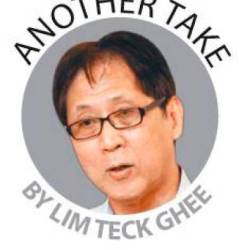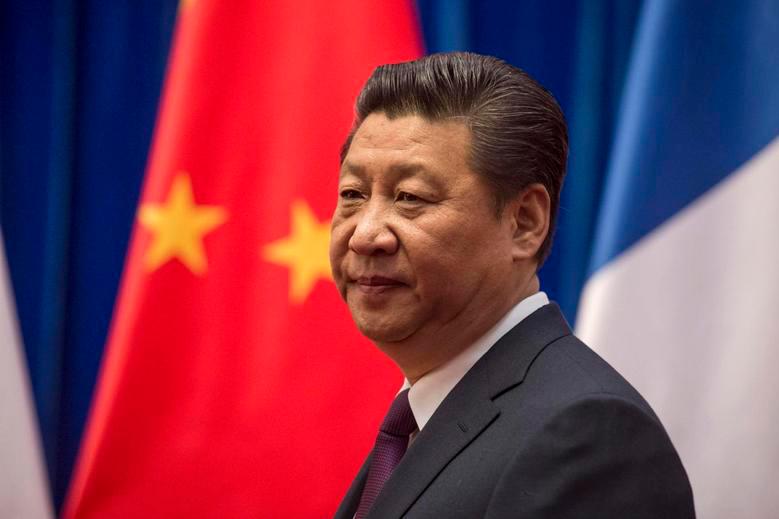THE latest attempt at China bashing by Western and Indian media has ended up not only looking foolish but also irresponsible and lacking in the qualities of objectivity and neutrality that they tout.
This follows the sensationalising of a story about a military coup in China and the arrest of President Xi Jinpeng following his non-public appearance from his first overseas trip to Uzbekistan since the Covid pandemic began.
The baseless rumours of Xi’s ouster began to take shape on Sept 23 with its origins traced to Jennifer Zeng, a follower of the supposedly religious group Falun Gong and its media-backed network in the US, which has been influential in disseminating conspiracy and anti-China stories.
The trustworthiness of Falun Gong can be gauged from its founder Li Hongzhi, who lives in the US, and has gone on record that he believes extraterrestrial aliens from other dimensions walk the Earth and are responsible for introducing technology, war and immorality.
He also claims that he is a being who has come to help humankind from the destruction it could face as the result of rampant evil, supposedly from China.
Prominent in Falun Gong’s and Li’s media network is The Epoch Times which, according to The New York Times, has used Facebook tactics and right-wing misinformation to create an anti-China, pro-Trump media empire since 2016. Further NYT notes that embracing Trump and Facebook has made The Epoch Times a partisan powerhouse.
It has also created a global-scale misinformation machine that has repeatedly pushed crackpot and fringe narratives into the mainstream.
How the coup rumour spread
As veteran journalist Nury Vittachi noted:
Huge numbers of journalists, east and west, took a clearly invented tale about the arrest of Chinese leader Xi Jinping seriously.
“Where there’s smoke there’s fire, as they say, and there is a column of smoke the likes of which we haven’t seen since July 64 AD pouring out of Beijing,” said the Australian edition of The Spectator, a UK title.
The ludicrous tale spread through the Internet worldwide, reaching millions of readers as it rose sharply on Google trends worldwide.
In India, it reached the list of the top three biggest news stories, despite not containing a word of truth.
Many versions included the information that there was no evidence for the story.
Still, they omitted that under the most basic rules of journalism, stories with zero evidence would normally not be considered printable.
The fact that it was so widely reported is yet another nail in the coffin of mainstream media credibility, said numerous voices on social media.
Vittachi has also noted the comments of more sensible voices on the story:
Jerry Grey, British-Australian commentator based in China: “Honestly, I can’t believe anyone would be so stupid as to discuss a coup in China without first verifying that it actually happened.”
Curt McArdle, a British teacher, “The whole thing seems like a massive own goal for Zeng, NTD/Epoch and anyone else sharing it. All it does is paint them as either gullible or untrustworthy...”
Jerry Wang on Twitter, “Why are we – not just China or the US but practically the whole world – so soft with journalists spreading unverified stories?”
Davide Melia, who works as a teacher in China: “I am quite jealous of people who get paid good money to just sit around and occasionally churn out completely made-up stuff that a not-insignificant number of people will take totally at face value.”
Indian media’s anti-China obsession
The role of India’s media in spreading virulent anti-China disinformation and fake news has been noted by observers.
This time round, Indian Twitter users (the third largest number of Twitter users in the world) together with the country’s digital media went to extraordinary lengths to disseminate the coup rumour.
Ordinary citizens who do not have a grasp of world politics can be excused for spreading the story.
However, the way in which prominent media such as Times of India, The Hindustan Times, ZeeNews India, India Today, DNA India, Livemint and others with professional journalists and all the information and sources in the world available contributed to making the coup story the talk of India is especially worrying.
Admittedly, China and India have a turbulent post-colonial relationship marked by border wars and rivalry in the region.
China’s close relationship with Pakistan, India’s arch-enemy since the days of independence continues to be a major source of concern for the Indian government and the public.
But new factors are contributing to the unfavourable and often hostile attitude of India towards China. They include the following:
-> Envy and jealousy with the rise and development of China;
-> Fragile self-confidence with what India has achieved in comparison with China;
-> Government efforts to whip up the nationalist sentiment to make up for domestic failures;
-> Indian media’s role in tarnishing China with anti-China news and analysis to win greater market share and to be seen as supportive of the government; and
-> Western government success in wooing Modi’s government away from neutrality towards a more aggressive anti-China position.
Perhaps it is not surprising that the Xi ouster and military takeover story should find its largest audience in India.
However, can this egg on the face which has only undermined India’s domestic and international credibility in news reporting become the starting point of a return to higher journalistic standards?
And a less obviously anti-China positioning by a nation admired for its earlier foreign policy independence and neutrality.
Lim Teck Ghee’s Another Take is aimed at demystifying social orthodoxy. Comments: letter@thesundaily.com














